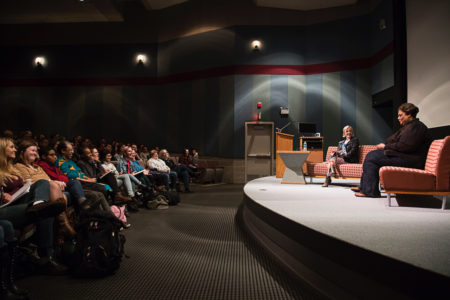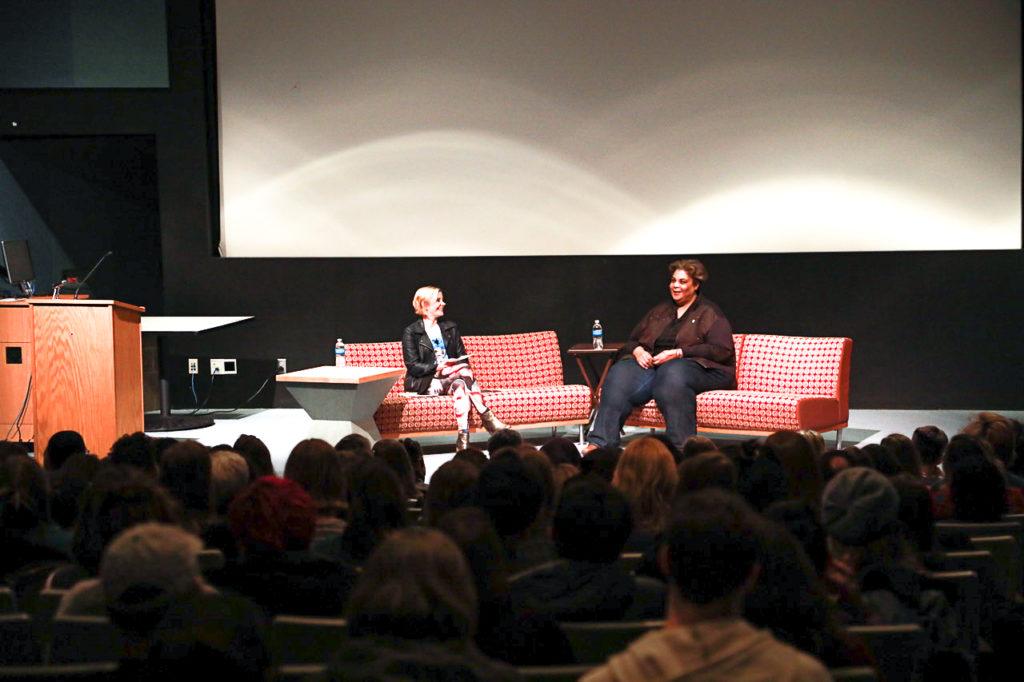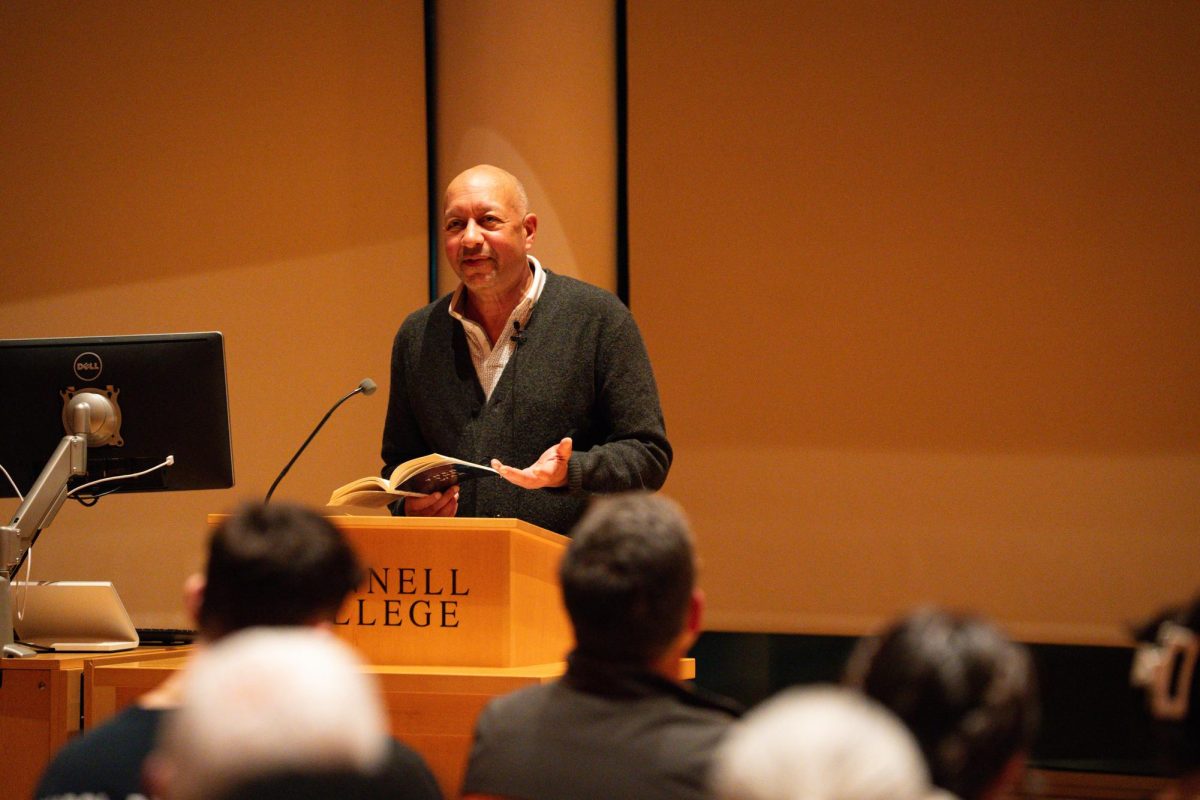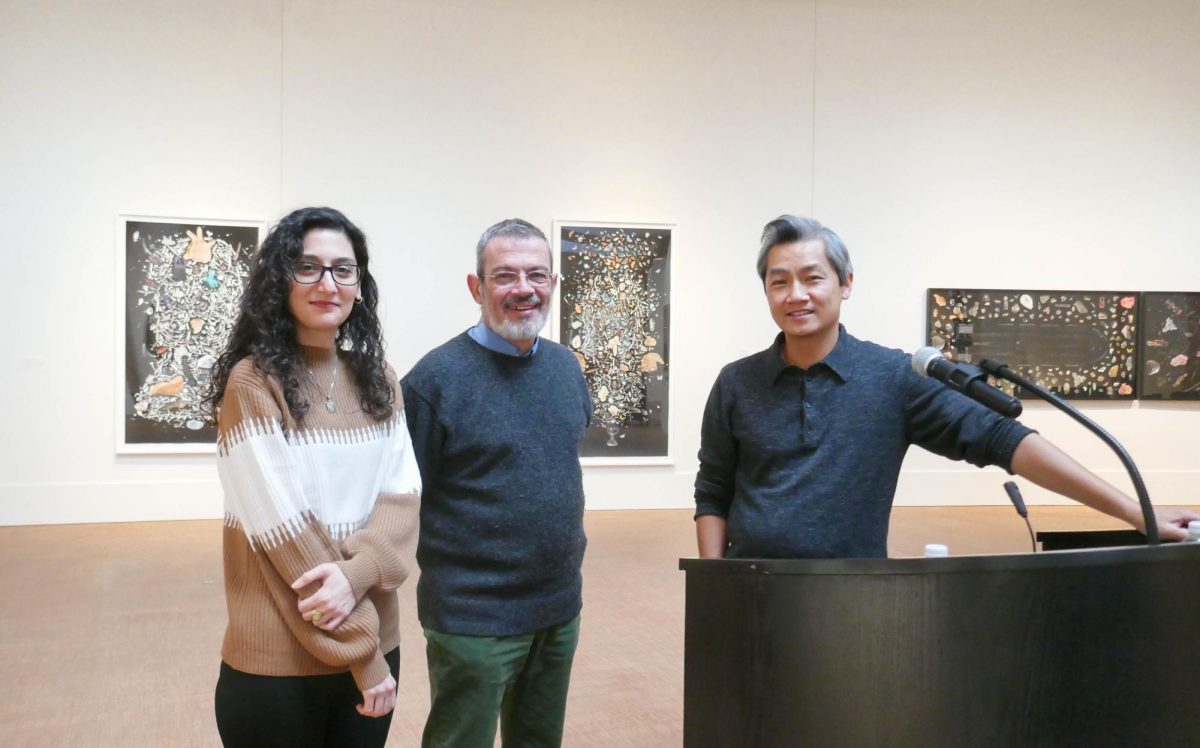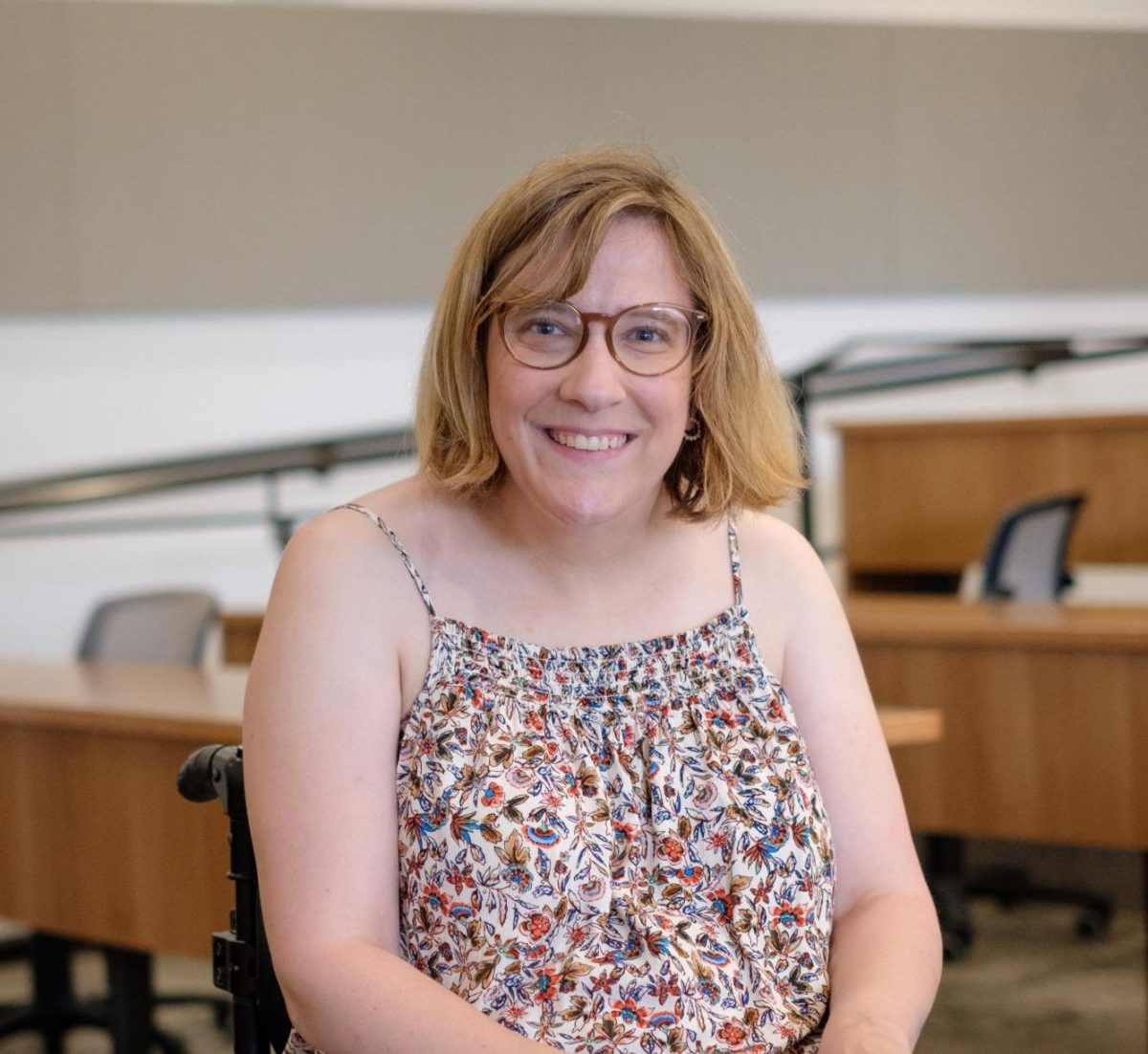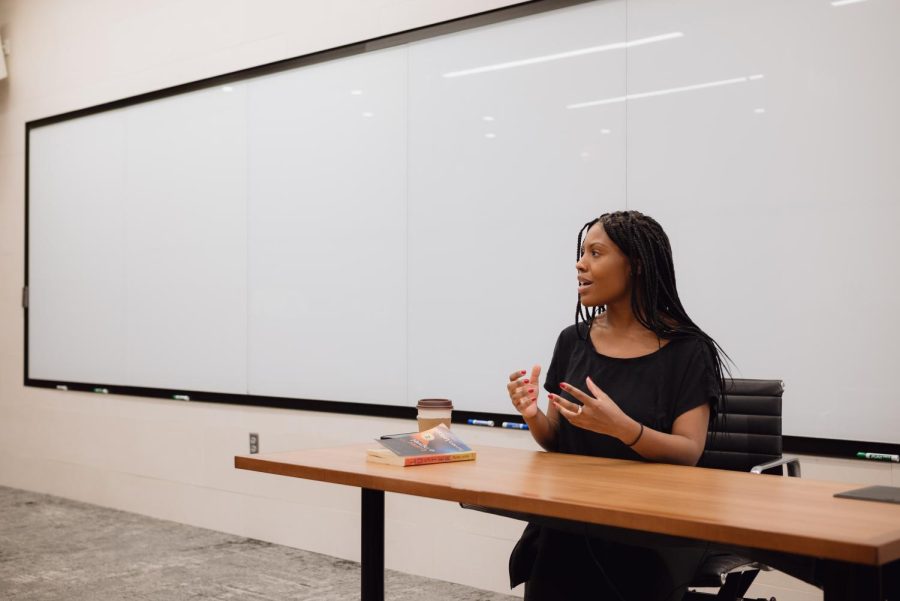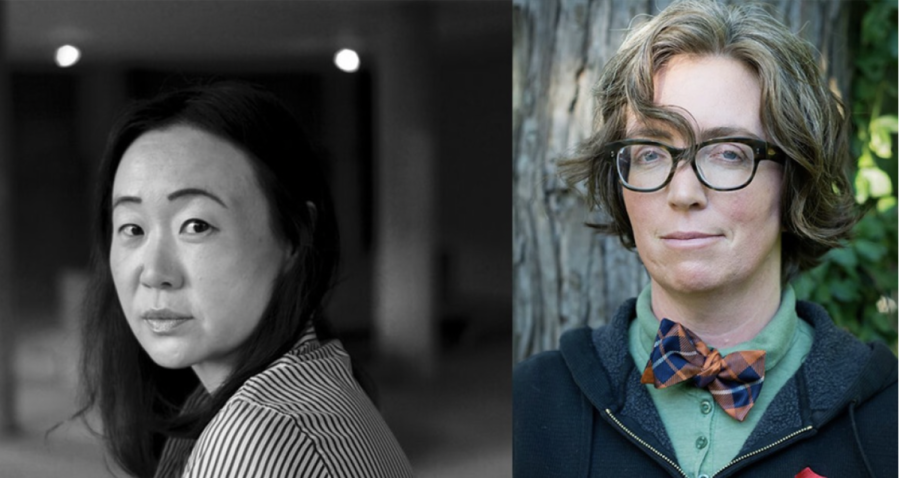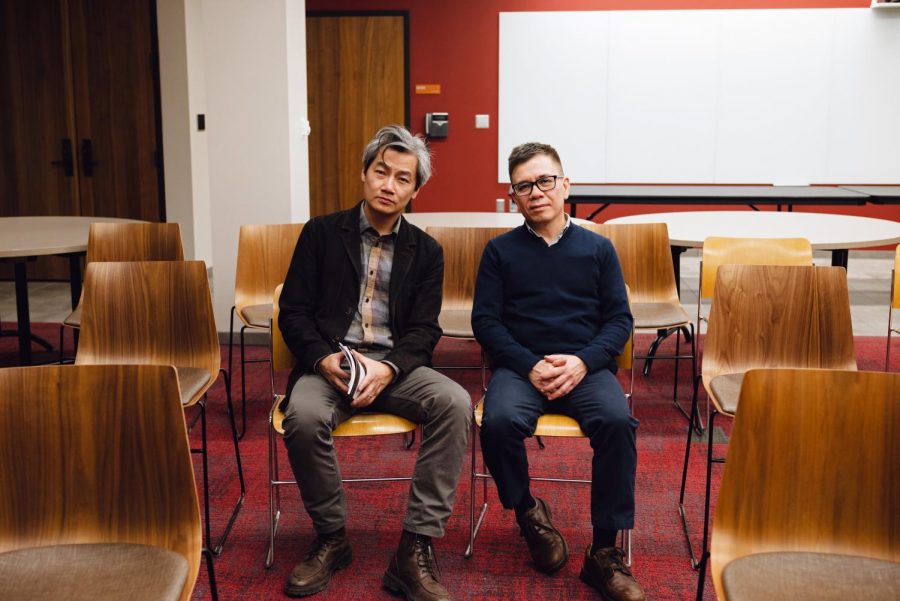By Emma Friedlander
friedlan@grinnell.edu
Roxane Gay is undoubtedly one of the most prominent and influential writers working today. Her novels, short stories, essays, blogs and tweets provide critical examination of Blackness, queerness, feminism, human bodies and more, earning her spots on the New York Times bestsellers list and a devoted fan base. Last Friday, April 6, Grinnellians got the opportunity to hear Gay speak about these topics firsthand, as she was interviewed in Harris Cinema by Professor Alissa Nutting, English, one of Gay’s close friends. The event was part of the Writers@Grinnell series and featured questions submitted by students, faculty and other visiting writers.
The Q&A at Grinnell College occurred in the midst of the release of “Unruly Bodies,” a popup magazine on Medium that Gay curated. “Unruly Bodies” features essays by 25 writers including Gay and will release new content every Tuesday throughout the month of April on Medium.com.
“Late last year, Medium approached me and said, ‘We would love for you to curate a popup magazine.’ … They gave me a budget that was going to allow me to pay writers real money, so I was really thrilled,” Gay said about the origin of “Unruly Bodies.” “I thought it would be great to continue the conversation I contributed to in ‘Hunger’ about living in a human body in a world that has very rigid rules about what a human body should look like, and how it should move through the world. I approached 24 writers and gave them the same prompt, which is, ‘what does it mean to live in an unruly body?’ … It was just really wonderful to see what the writers did with that prompt. There’s no overlap.”
Human bodies that defy society’s standards have been a prominent topic in many of Gay’s works. Besides “Unruly Bodies,” her nonfiction book “Hunger” and short story collection “Difficult Women” explore both the reality of female bodies and the expectations projected upon them. Naturally, then, bodies were a major topic of conversation at last Friday’s Q&A — especially bodies as a site of resistance.
“We use our bodies as sites of resistance in a lot of different ways. How we present our bodies, where we place our bodies. It’s actually some of the most important work that we do, and it often goes the most unacknowledged,” Gay said. “I’m the only Black faculty member many of my students are going to have [at Purdue University]. I know that by placing my body in an inhospitable climate, I am committing an act of resistance. I think it’s important, but I think we also have to consider the toll that it takes.”
Gay and Nutting’s shared love for tattoos led to eager discussion on how getting inked can serve as an act of resistance, especially for women.
“When we tattoo ourselves, we ruin something, because we’re supposed to be an unblemished canvas that you can project your bullshit onto. It’s very frustrating,” Gay said. “I got most of my tattoos when I was 19. I thought the best thing I could do for my future career prospects is get tattoos that are large and dark on my forearms. I was so right! I was very alienated from my body, I was having a mental breakdown and had run away from college and was not speaking to anyone in my family. I just wanted to do something with my body that was my choice.”
Gay’s alienation from her body was largely related to being gang raped at the age of 12, a trauma she reflects on in “Hunger.” Gay’s own relationship to writing about sex, sexual violence and consent is complicated. She related that she goes with her gut feeling when determining how to write about these topics, and errs on the side of not sharing too much.
“In the stories in ‘Difficult Women,’ there is a lot of sexual violence,” she said. “I think the reality is that in life, the lines are blurred between consent and a lack of consent. That’s what makes so many conversations around sexual violence difficult, because we just don’t have a clear understanding of what consent looks like and what consent feels like. I try to explore that in my writing. For myself, my guideline is always don’t sensationalize it. … I never describe any of the assault scenes. Because I just don’t feel like you need to put that into the world. Our imaginations are horrifying enough to fill in those blanks.”
A contributor to so many contemporary literary conversations, Gay is far from working in a vacuum. As demonstrated by her curating of “Unruly Bodies,” Gay is committed to collaborating with and supporting other writers, especially Black and queer writers, as well as drawing inspiration from them.
“I love Zadie Smith, who is just incredibly intelligent,” Gay said on the British writer who delivered Grinnell’s commencement address in 2016. “She takes risks. She says unpopular things sometimes and awkward things and things I find to be completely wrong-headed, but she says them really well. You can tell that she’s someone that puts in the work and really cares about a life of the mind.”
Gay also shared the books and authors she is currently reading in celebration of Blackness and queerness. These include the works of Samantha Irby, who will visit Grinnell next year, along with “An American Marriage” by Tayari Jones and “The Recovering” by Leslie Jamison.
